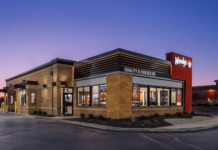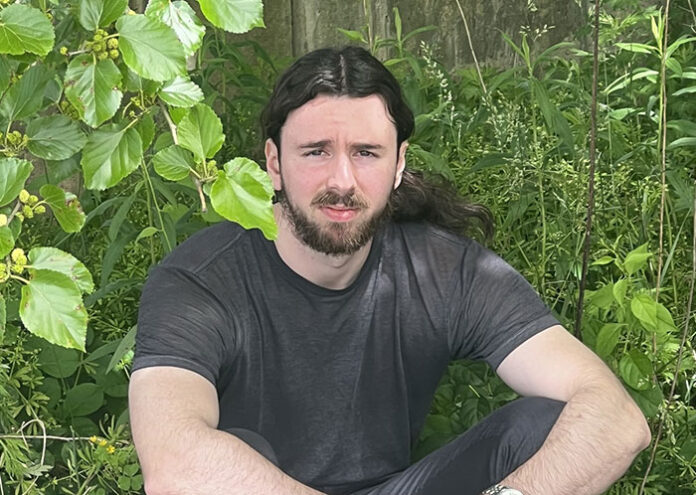
LACEY – In the state renowned as the birthplace of the film industry, a 26-year-old creative talent from Forked River is gearing up to launch his inaugural feature film, “Retrograde Victory.”
Filmmaker M.J. Walker’s anticipated release aligns perfectly with the flourishing surge in New Jersey’s film industry as Netflix and Lionsgate establish their presence in the state.
Inspired by actual events, “Retrograde Victory” takes a departure from the conventional narratives surrounding the Vietnam War and offers a fresh perspective. Walker emphasized that the film is not a documentary.
“The story is based on my grandfather’s (Barry Crease) experience during that era,” he said. “It tells the tale of a lot of people who didn’t go but had friends that did. Maybe they couldn’t be drafted because they were an only child, or maybe their other brothers had already gone, and they were last one.”
“Or, they could have been like my grandfather, who was faced with an injury,” he shared.
During the script’s development, Walker received invaluable insights from his grandfather, which unraveled intriguing details about the Vietnam War. One particular conversation profoundly impacted Walker when his grandfather mentioned the loss of his friend, Paul, on Hamburger Hill.
Intrigued by the revelation, Walker embarked on a research journey to uncover more about Hamburger Hill. He discovered that the battle involved a relatively small number of soldiers over a ten-day period. Walker’s perseverance led him to an online memorial that included the name of his grandfather’s friend.
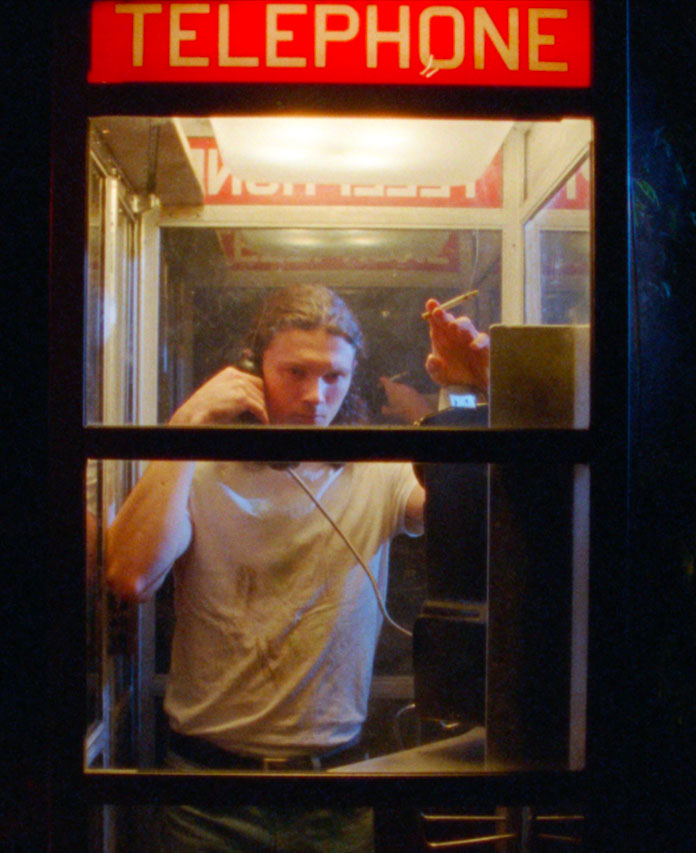
“As I was writing the script, I thought how morbid it would be if the character in the movie died a day before the battle ended,” said Walker. “Lo and behold, when I went to visit Paul’s grave, the gravestone said he died the same day I wrote in the script.”
The uncanniness was not lost on Walker and propelled him to learn more about the lives of numerous young individuals who were drafted and deployed to Vietnam. Walker’s summary of the “goal of his first film is not simply to show another side of the Vietnam War, or even just another tale of comedy and tragedy, but to show the worth of humans.”
In the meantime, Walker’s roles in “Retrograde Victory” go beyond those of a camera operator, screenwriter, and research expert. He is also the location scout, casting director, producer, and executive director.
With meticulous dedication as the props master, Walker demonstrates a keen eye for detail. Going above and beyond, he has personally invested his own funds to buy significant items like a vintage phone booth to ensure an authentic portrayal. Additionally, for an upcoming scene, Walker hopes to secure a leased bus that perfectly captures the essence of the era. His commitment to historical accuracy shines through Walker’s endeavors as he strives to create a truly immersive experience for the audience.
“In 1967, just about everybody smoked Newports,” said Walker. “Until 1967, the Newport carton was a very basic font for a sealed carton. I found this because I would read catalogs about cigarettes.”
“I went out of my way and spent so much money for a whole package of old cigarettes,” Walker continued. “The only one I wanted in that pack was just the Newports from 1967. The guy wouldn’t let me buy just that one pack.”
When selecting set locations, Walker searched out places that could be adapted to reflect the Vietnam era. Locals will recognize the Forked River Diner in the film, sans the modern-day cars regularly parked out front. Other scenes have been shot in Asbury Park, Brick, Jersey City, and Shark River Hills.
In his search for actors to bring his movie to life, Walker turned to trade journals, utilizing them as a valuable resource. Among the talented individuals he discovered, one actor, in particular, fills him with immense pride – Zane Claudio. Cast in the pivotal role of Barry, named in honor of Walker’s own grandfather, Claudio’s performance holds special significance within the film.
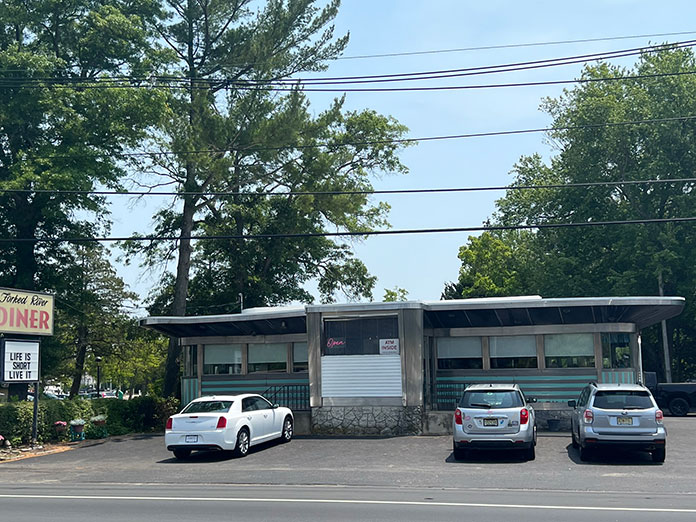
A remarkable aspect of the entire project stems directly from Walker’s journey as a self-taught aspiring creative. From a young age, he displayed a natural talent for intricate hand drawings, eventually leading to his exploring video game mapping during his teenage years. Through self-guided learning, Walker ventured into the realm of digital photo and video editing software, progressing further to master 3D software.
The evolution of cell phone cameras served as an additional invaluable learning tool, propelling Walker’s artistic growth to its current stage. From humble beginnings, Walker’s innate abilities and relentless pursuit of knowledge have brought him to where he stands today, poised to make a significant impact in the world of filmmaking.
A year after graduating from Lacey High School, Walker decided he needed to head out to Los Angeles to pursue his dreams. He didn’t know anyone there, and he didn’t have a portfolio.
“I was working at a supplements store,” said Walker. “And I was filming music videos for friends I made. One was an aspiring actor and the other a rapper.”
Walker didn’t charge for the videos as he was trying to build up his portfolio. While he had some interesting experiences out in LA, he returned to New Jersey after a couple of years.
“I love film,” Walker shared. “I think that the ‘movie look’ is something that people born before the 2000s can tell subconsciously is a movie based on the look.”
Walker said he prefers to shoot in 16mm film rather than digital as many modern filmmakers use. While digital cameras are very good with the dark parts of an image, the backgrounds are very white and blown out.
“So, film has a beautiful look with the skies and clouds and the sun,” shared Walker. “You could shoot the sun, and the sun’s bright. In most cases, you can see the color of it.”
According to the “Retrograde Victory” website, one of the things Walker wanted to capture was a raw and gritty aesthetic reminiscent of movies filmed between 1967 and 1969. Before, major film companies were using slow speed 35 mm Eastman Kodak film. Walker said that Kodak’s 16mm film stock now emulates the vibrant color films of the 1950s, 1960s, and 1970s while offering increased dynamic range and lifelike colors.
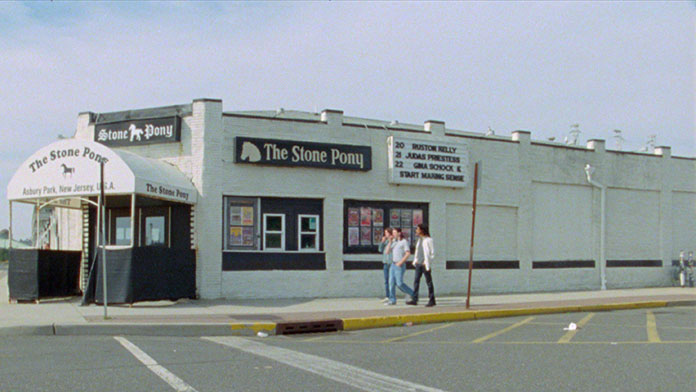
The cost of producing the movie is no minor expense. Walker estimated that every 11 minutes of film, including paying actors – runs him about $400.
Walker plans to have “Retrograde Victory” ready for distribution next year. The first objective is to make sure at least a handful of people give him some feedback. Walker has set a goal to have the film reach a broader audience, with film festivals serving as a platform for that purpose.
Discussions with an industry veteran have opened Walker to a new perspective, including the significant opportunities that exist in foreign distribution alongside streaming platforms like Netflix, Hulu, and Amazon Prime.
Add one more job to Walker’s role in the “Retrograde Victory” movie. A self-reliant man, Walker’s ready to set up meetings himself to approach potential distributors or streaming platforms. With Netflix and Lionsgate establishing a presence in New Jersey, Walker won’t have to travel far to make his pitch.
More information about the film, visit retrogradevictory.com.




